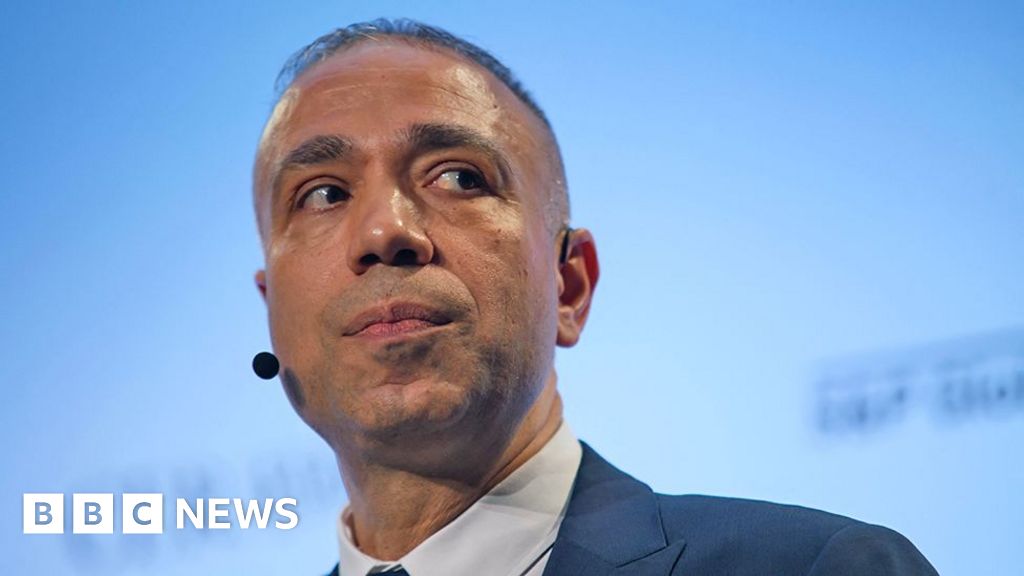
Sign up for the daily Inside Washington email for exclusive US coverage and analysis sent to your inbox
Get our free Inside Washington email
Prince George’s County Executive Angela Alsobrooks won the Democratic Senate primary in Maryland, beating an adult beverage chain mogul who had made the race a staggering display of his own wealth.
The race was called shortly before 10, when Alsobrooks was leading by more than 20,000 votes. It was an impressive showing for a local state official against a congressman with more resources and a history of running in competitive Democratic primaries.
“We are going to defeat Larry Hogan, keep Maryland blue, and keep our Senate under Democratic control — spread the word,” the victor declared on Twitter shortly after the race was called.
Trone, billionaire owner of the Total Wine & More chain, broke open the casks for this race and his election-night event was no exception. A modestly-attended bash (possibly a sign of the weather and generally low turnout of the primary) was thrown at Baltimore’s Museum of Industry, a quaint collection of relics from the city’s manufacturing past located a stone’s throw away from the towering red neon Domino Sugars sign which has illuminated Charm City’s skyline for nearly a century.
Partygoers including electeds from around Maryland said they expected the race to be close — a “squeaker” — and they were right. Trone’s staggering cash advantage had come up against a sizable chunk of the Maryland Democratic machine. More than an hour after voting had ended, it was clear that it had not been the race-defining advantage his supporters hoped it would be.
Money was one factor that played heavily into this primary. Race was another.
As attendees slowly trickled into Trone’s event, a clear theme emerged: the candidate’s strength with both Latino and Asian-American Democratic electeds was evident. A southern state which is made up partly by the suburbs of Washington DC, the nation’s federal workforce has counted many Marylanders (and in particularly many Black residents of Prince George’s and Montgomery counties) as members for decades. Alsobrooks consolidated the Black political class of the state, concentrated in Baltimore, at what her some of her detractors said was the expense of other key parts of the so-called “Obama coalition”.
“I knew that I was not going to support Alsobrooks from the very start,” Briana Urbina, a city councilmember from New Carrollton, told The Independent. (New Carrollton is located within Alsobrooks’s jurisdiction of Prince George’s County).”Based on her lack of inclusion of Latinos in her cabinet and her lack of response to many Latinos trying to engage her.”
Trone, she noted, “vigorously” pursued the support of Latinos in the state — and had engaged her more than a year out from the primary, repeatedly, wearing down her resistance and skepticism.
Urbina also pointed to one other point in the congressman’s favour: even a year ago, when Larry Hogan had been adamant about not seeking a Senate seat, Trone had been clear-eyed about the likelihood of the ex-governor jumping into the race.
State Delegate Deni Taveras echoed those same concerns about Alsobrooks locking up Black allies like Wes Moore and Brandon Scott while leaders from other communities felt as if they fell by the wayside. She also said that Trone had moved on from his “hiccup” of uttering a racial slur — unintentionally — during a House hearing with all available grace.
Taveras likened the strategy pursued by Alsobrooks to focus on Black voters to “divide-and-conquer tactics”.
Both Taveras and Urbina were quick to say, however, that the Maryland Democratic coalition would be reformed in time for November — both pointed to keeping the Senate seat currently held by retiring Ben Cardin as the top priority of the election season.
A short (depending on traffic) trip down I-97, Larry Hogan was rallying supporters in Annapolis, where his campaign was always going to find its strongest base: Maryland’s yacht-club Republicans. The Republican nominee was crowned shortly after votes started coming in, the field having been essentially cleared for the former governor who did not even face a Trump-backed primary opponent.
“Tonight, the campaign for Maryland, and Maryland’s future, begins,” a triumphant Hogan declared to fans at his event.
Hogan will need all the help he can get from those Republicans in Annapolis, as well as down the road in Washington. While early polling of the race upon his entrance earlier this spring pointed to the possibility that his name recognition would put him at an advantage over both Alsobrooks and Trone, a poll released in the final days of the race by Emerson indicated that either Democrat could pull out a victory. Democrats who spoke to The Independent as well as countless other news outlets pointed to a difference between sending Hogan, who was a popular Republican governor, to the Senate over the governor’s mansion given the delicate 51-49 balance in the upper chamber.
The race now pivots to November, where Hogan continues to present one of if not the GOP’s best chance at picking up a seat in the upper chamber this cycle. Democrats, conversely, will need to spend resources to protect a seat which they would otherwise not need to expend.
Trone spoke for a few minutes after 1030 on Tuesday, after calling to concede the race. He thanked supporters, and called on Democrats to help the party defeat Hogan in November. The congressman was then promptly rushed out of the event, with aides refusing to allow any questions.
Those potential questions for Trone were obvious: will his supposedly-bottomless coffers dry up as his party works to keep the Cardin seat blue? And what lessons, if any, does he take from spending the most money in Maryland’s senatorial primary history, only to come away the loser? As he strolled out into the dark parking lot, the answers remained unclear.

 5 months ago
31
5 months ago
31









